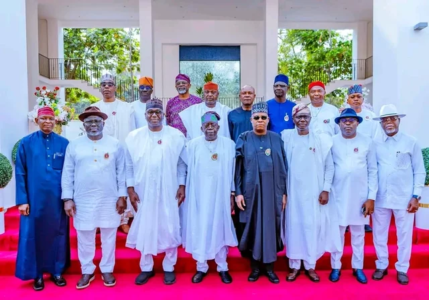When President Bola Ahmed Tinubu removed fuel subsidy in May 2023, it wasn’t just an economic reform — it was a fiscal revolution. For the first time in decades, state governments began receiving record allocations from the Federation Account, giving them unprecedented resources to drive development at the grassroots.
Record FAAC Inflows
The Nigeria Extractive Industries Transparency Initiative (NEITI) reports that FAAC disbursements rose from ₦9.18 trillion in 2022 to ₦10.14 trillion in 2023 — a 66% increase. Simply put, governors now have more money at their disposal than ever before.
By June 2025, monthly FAAC hit an all-time high of ₦1.818 trillion. Out of this, states received ₦607.42 billion, almost matching the federal government’s ₦645.38 billion. In May 2025, the states even out-earned Abuja, collecting ₦577.84 billion compared to the federal government’s ₦538 billion — a historic first in decades.
Same Problems, Bigger Budgets
Yet despite these windfalls, the realities for ordinary Nigerians remain unchanged: collapsing schools, underfunded hospitals, unpaid salaries, and broken infrastructure. The money meant to ease suffering is no longer tied up in Abuja — it is sitting in state capitals.
This disconnect raises tough questions:
- Where is the money going?
- Why are classrooms still in ruins?
- Why are hospitals still ill-equipped?
- Why are roads still death traps?
Time to Shift the Conversation
For too long, public anger and scrutiny have been directed at the federal government alone. But with the removal of subsidy and redistribution of revenues, financial power has shifted. The President has dismantled subsidy rackets and freed up resources. It is now the responsibility of governors to show results.
Real development — in agriculture, jobs, education, and healthcare — will only happen when state leaders deploy these allocations transparently and effectively.
Citizens Must Demand Accountability
The truth is simple: the money is with the governors. Nigerians must apply the same energy used in holding Abuja accountable to their state governments. Town hall meetings, civil society advocacy, and citizen watchdog platforms must now focus on state budgets and projects.
President Tinubu has moved the money closer to the people. The duty now lies with citizens to demand accountability, insist on transparency, and ensure that these historic inflows are converted into real development.

